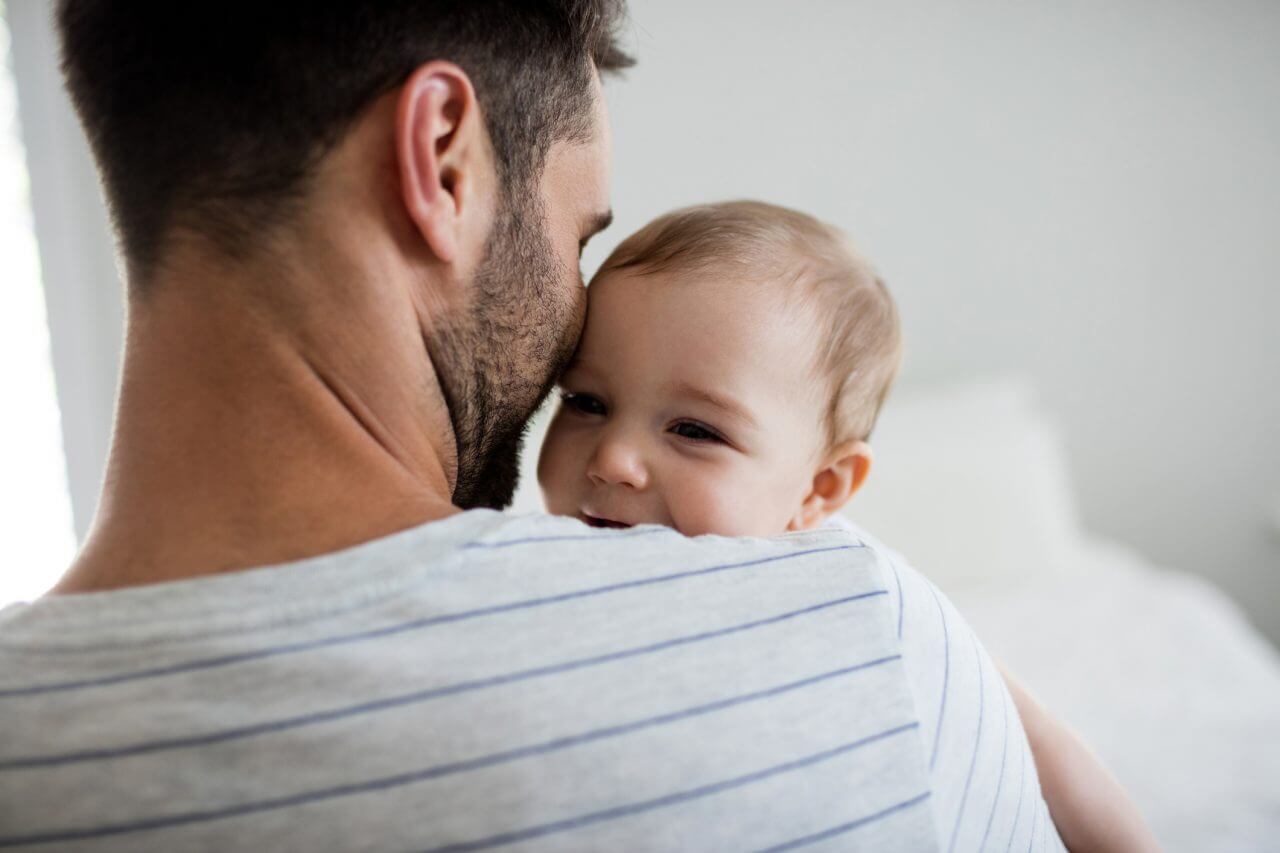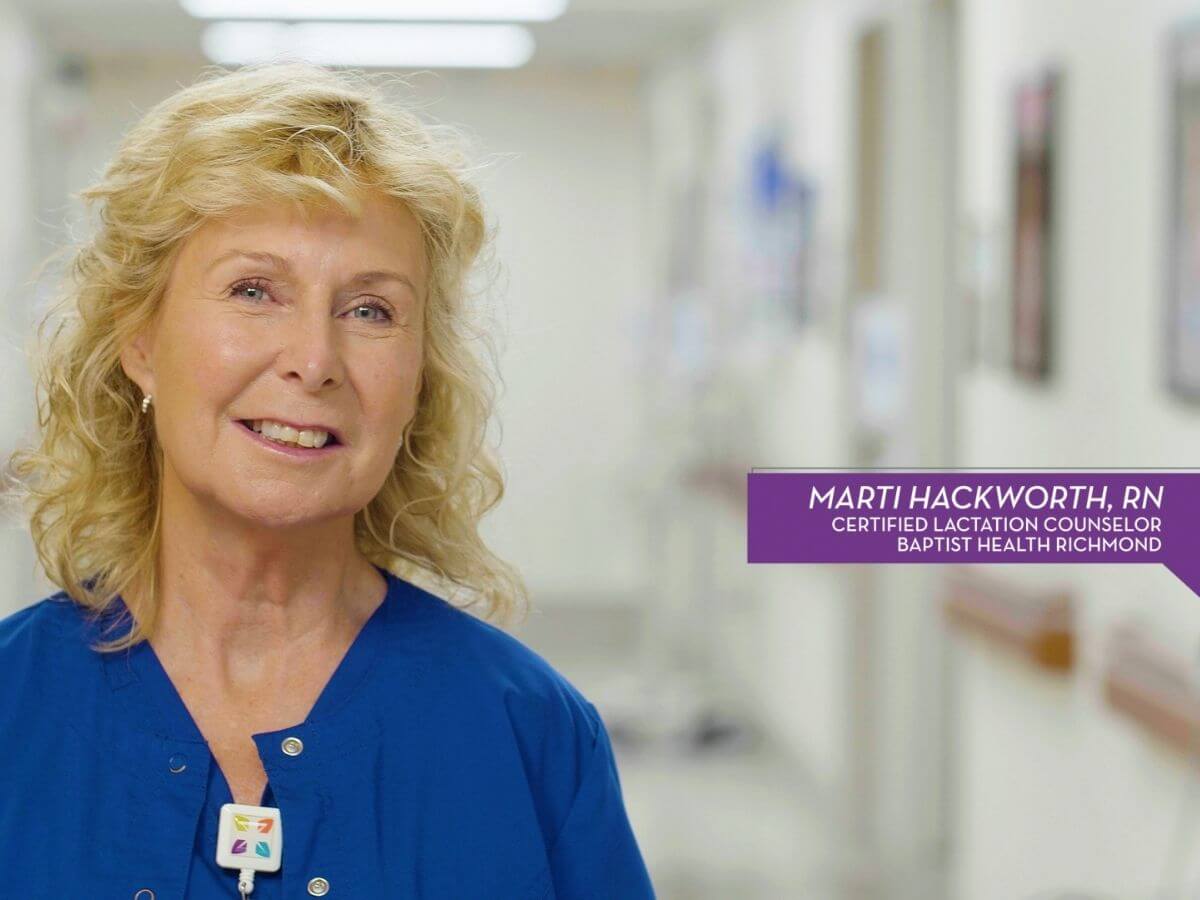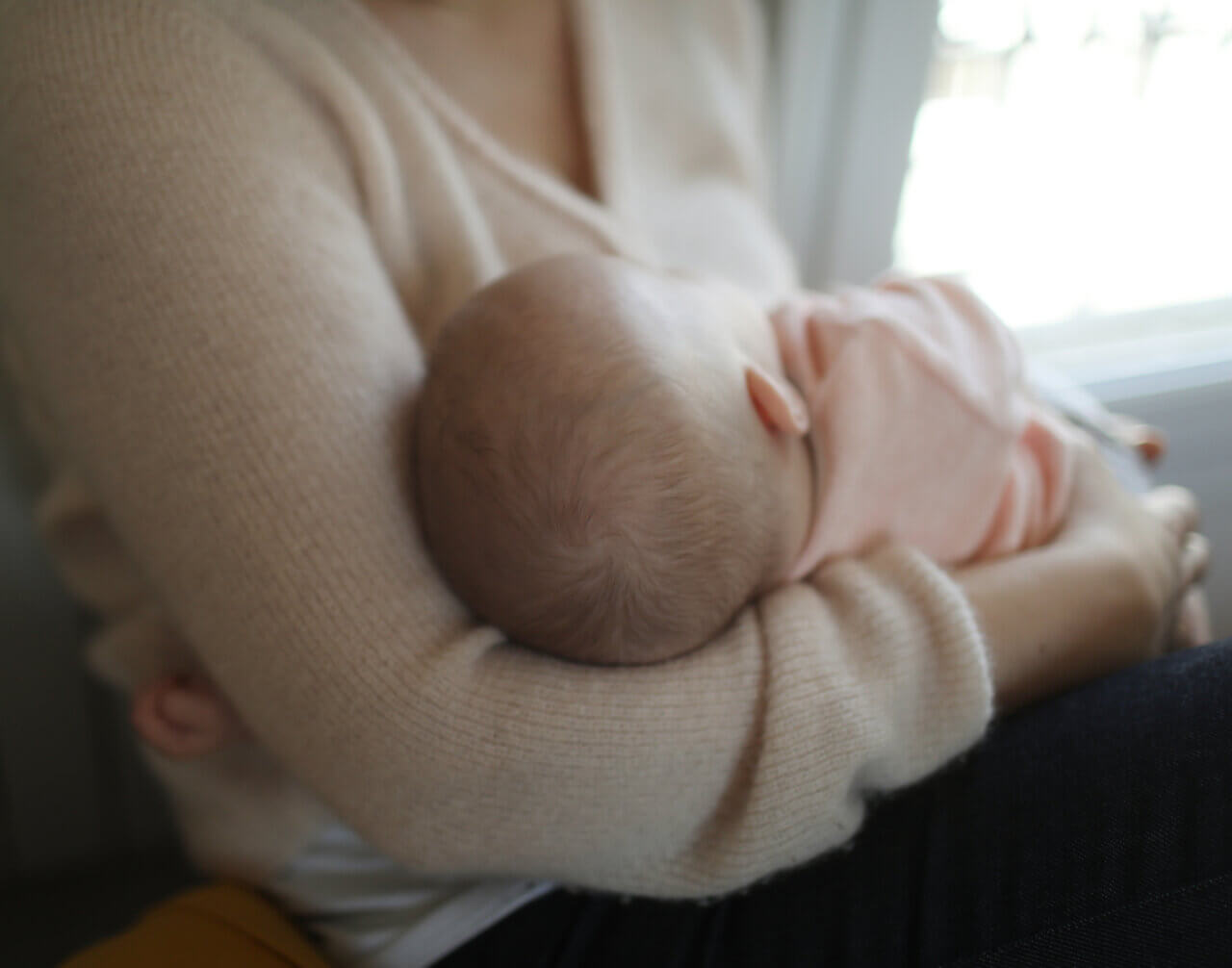How to Get Rid of Newborn Baby Hiccups

When a newborn hiccups after nursing, it may seem cute at first and leave you wondering, “Why do newborns get hiccups?” But if your baby has hiccups for an extended period, you may be concerned that it’s causing them discomfort. At that point, your question might be, “How do I stop my baby’s hiccups?”
Fortunately, babies don’t seem to be bothered by them. In fact, many can sleep right through a case of hiccups. However, if you decide to take action when your newborn has hiccups after breastfeeding or to prevent hiccups in the first place, there are things you can do.
What Causes Baby Hiccups?
As many mothers can attest, some babies begin hiccupping while they’re in the womb. It’s an action that continues after birth, with many newborns experiencing hiccups after breastfeeding. But doctors aren’t sure what causes newborn hiccups after nursing — or anytime, for that matter.
Physicians do understand the mechanics of hiccupping. A hiccup occurs when the baby’s diaphragm spasms and forces air through the closed vocal cords. This contraction can happen for no reason at all or for several reasons, including that the baby does any of the following:
- Eats too much
- Eats too quickly
- Swallows air while feeding
Their expanding stomach then pushes against the diaphragm, causing the spasms that produce hiccups.
So, while we don’t know precisely what causes hiccups in newborns, it generally isn’t a medical issue or cause for concern. Still, it’s understandable to want to provide hiccup relief for your baby.
Hiccups can be a sign of another condition, such as GERD (gastrointestinal reflux disease or heartburn). Fortunately, GERD is easily treated.
Infant Hiccups and Reflux
The relationship between infant hiccups and reflux is fairly straightforward. Researchers believe they understand why reflux is one of the causes of hiccups in newborns.
The backward flow of stomach contents into the esophagus irritates it. This irritation can then trigger the phrenic nerve, which controls the diaphragm, causing the involuntary contractions that produce hiccups.
What to Do When a Newborn Has Hiccups
Every baby reacts differently to the hiccups. Some find them amusing. Others don’t seem to notice them at all. However, some babies are upset by the hiccups.
If you feel hiccups are a distraction to your baby when you are trying to nurse or that they’re causing your baby distress, newborn hiccups cures include:
- Burping your baby
- Giving your baby a pacifier
- Waiting for the hiccups to stop on their own
Burp your baby
When addressing baby hiccups, burping is a good place to start. Burping your baby can relieve pressure that’s causing the stomach to irritate the diaphragm. Doctors recommend burping a bottle-fed baby after every two to three ounces. Breastfed babies should be burped when switching sides.
Give your baby a pacifier
Babies can develop hiccups even when they’re not nursing. Sucking on a pacifier can help relax their diaphragm and stop a bout of hiccups.
Wait for newborn hiccups to stop on their own
If your baby isn’t bothered by the hiccups, you can simply let them run their course. Typically, they’ll resolve without any intervention. But if your baby’s hiccups are especially frequent or continue for an extended period, you should talk with your doctor.
Will Gripe Water Work for Baby Hiccups?
Gripe water is a liquid given to address issues like fussiness, gas and hiccups after feeding a newborn. Formulations vary, but it often contains herbs like ginger, fennel, chamomile and sodium bicarbonate. The idea is that these ingredients can reduce digestive discomfort and potentially the incidence of hiccups.
It's crucial to know that gripe water is classified as a dietary supplement. That means it is not regulated by the U.S. Food and Drug Administration (FDA) in the same way as medications. Consequently, the ingredients, quality and effectiveness of different gripe water brands can vary significantly. So, it’s essential to talk with your healthcare provider before giving your baby gripe water.
What Not To Do To Treat Newborn Hiccups
While there are steps you can take regarding a newborn and hiccups to reduce the occurrence, it's crucial to avoid certain traditional remedies that are not only ineffective but can also be harmful or distressing for your baby. These actions probably won’t stop the hiccups and could potentially cause unnecessary fear or physical discomfort to your newborn.
Here are some things you should not do for newborn hiccups:
- Scare them
- Give water
- Pull their tongue
- Pinch their nose
- Feed them more
How to Prevent Hiccups in Newborns
If newborn hiccups are an issue for your baby, it’s ideal to prevent them in the first place if possible. Actions from modifying the timing and quantity of feedings to finding the best position for avoiding baby hiccups can help.
Try these tips to help prevent newborn hiccups:
- Feed your baby before they reach the point of being very hungry and agitated.
- Feed your baby regularly in small amounts.
- Avoid high-energy play, such as bouncing, immediately after feeding.
- Keep your baby in an upright position for approximately 30 minutes after feeding.
- There may be a relationship between hiccups and latch connection. Ensure that your baby’s mouth is latched over the whole nipple when nursing.
When to Contact a Doctor Regarding Your Newborn’s Hiccups
Occasional hiccups are normal in babies. However, frequent hiccups for newborns might warrant a conversation with a pediatrician, especially if the hiccups are accompanied by other signs. Your health care provider can talk with you about issues like infant hiccups and reflux.
Here are reasons to contact your pediatrician regarding frequent hiccups:
- Hiccups with spitting up
- Forceful vomiting
- Irritability after feeding
- Poor weight gain
- Breathing difficulties
Can I Leave My Newborn Lying Down with Hiccups?
Sleeping with hiccups and how it affects newborn safety is a common concern. Parents often wonder if it’s OK to let a newborn sleep with hiccups.
If your baby isn’t having trouble breathing or demonstrating any signs of distress, you can lay them down with hiccups. However, as noted above, keeping babies upright for half an hour after feeding them is best to help prevent newborn hiccups to begin with.
Talk with Baptist Health About Newborn Hiccups
If the steps above don’t have much effect and you’re still wondering, “How can I get rid of newborn baby hiccups?” reach out to the Mother & Baby Care specialists at Baptist Health. We can discuss your situation and work with you to find a solution.
FAQ
Do Hiccups Mean the Baby Is Full?
Hiccups don’t necessarily mean a baby is full. Several issues can cause them, including rapid feeding.
Do All Babies Get Frequent Hiccups?
Babies are prone to hiccups. However, not every baby gets them frequently. Factors like feeding habits and the maturity of their digestive system play a role in their hiccups.
Can You Feed a Newborn When They Have Hiccups?
Yes, you can generally feed a newborn when they have hiccups. If the hiccups seem to be upsetting them or are making it hard for them to latch and suck, you might consider waiting briefly and trying to soothe them before continuing with the feeding.
How Long Should Baby Hiccups Last?
Newborn hiccups typically only last a few minutes. It’s a good idea to talk with your healthcare provider if your baby often has hiccups that last longer than 10 minutes.



